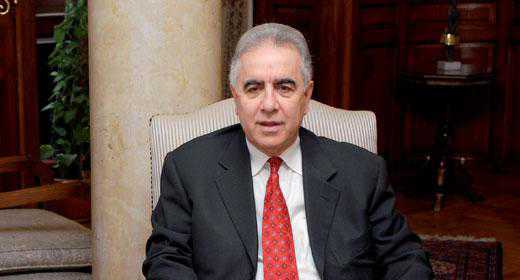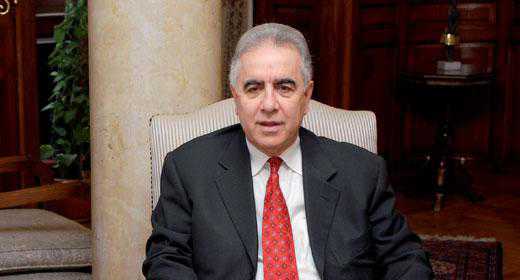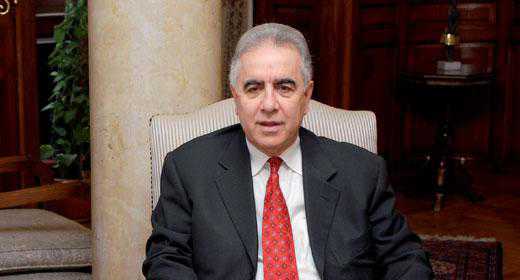
The Voice of Armenians TV in New York (VOATV NY) held its second annual fundraising banquet on March 2, at The Palisadium in Cliffside Park, New Jersey. On this auspicious occasion, the television network’s Board of Directors honored Zarmine Boghosian, writer and Principal of Holy Martyrs Armenian Day School; Dr. Herand Markarian, playwright, director and actor; and Harut Sassounian, Publisher of The California Courier and President of the United Armenian Fund.
After opening remarks by Master of Ceremonies Haik Kocharian and welcoming words by VOATV Chairman, Dr. Aram Cazazian, the honorees were introduced by Natalie Gabrelian, Director of Alternative Education, AGBU; Haroutiun Misserlian, educator and engineer; and Appo Jabarian, Publisher, USA Armenian Life Magazine. Congratulatory remarks were made by curator Vicki Shoghag Hovanessian and VOATV Executive Producer and host Karine Kocharyan.
In his acceptance speech, Sassounian shared with the 300 guests in attendance his deeply held convictions based on 40 years of political activism and community involvement. He expressed the hope that the recommendations outlined below would strengthen and empower Armenians worldwide:
1) Encourage the participation of women in every level of community activity. Since women comprise 50% of the Armenian people, once old-fashioned obstacles are removed, Armenians could overnight double their overall resources and capabilities.
2) Involve the youth in all societal activities by assigning them special responsibilities, as they constitute the future of the Armenian nation. If Armenians today fail to transmit their achievements and activities to the next generation, all of their efforts would have gone to waste.
3) Treat every Armenian as a family member, regardless of personal disagreements or differences in social, political, and religious affiliation or country of origin. Armenians should relate to each other as equals. No distinctions should be made between Armenians from the Diaspora and the Homeland.
4) Discard the Ottoman and Soviet mentalities inherited by some Armenians. Even though they left the Ottoman Empire long ago, and the Soviet Union more recently, it appears that the regressive influence of these mentalities has not left them.
5) Extend assistance to the people of Armenia and Artsakh, regardless of the differing views about their leadership. Presidents and Prime Ministers are temporary, while the Homeland is perpetual.
6) Strive always to form a coalition rather than causing dissension. Be a unifier, not a divider. Keep in mind the exhortation of prominent poet Yeghishe Charents: “O Armenian people! Your salvation only lies in your collective power.” Ideally, the Armenian Diaspora should have a democratically elected representation, bringing Armenians under a single umbrella by a popular vote.
7) Support all community organizations, be they social, cultural, religious or political in nature, thus helping to ensure the survival of the Diaspora. A powerful Diaspora is the backbone of a strong and secure Armenia.
8) Reject feelings of helplessness and inferiority and eliminate all defeatist attitudes. Individually and collectively, Armenians can realize their legitimate aspirations, as long as they work together for the common cause. They can overcome all adversaries and adversities by remaining united and strong. If Armenians can put their domestic house in order, they can easily counter all external threats.
9) Finally, with the approach of the Armenian Genocide Centennial, Armenians worldwide — the Republics of Armenia and Artsakh, as well as the Diaspora — should rally around a single unified message about their demands from Turkey. Armenia and Diasporan communities should not make separate and different demands, causing confusion among their supporters and adversaries. The single word that encapsulates all Armenian demands from Turkey is “Justice,” which encompasses moral, financial and territorial restitution to the Armenian nation.






